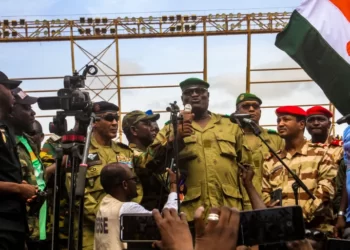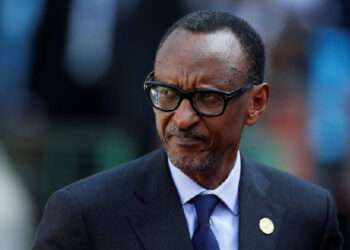Senegal’s internet service came back online on February 7, 2024, a few days after the government temporarily shut it down due to the postponement of this month’s presidential election.
Netblocks, a monitor of internet disruptions, mentioned that it’s still uncertain if the internet will stay up consistently.
Tensions flared in Dakar following President Macky Sall’s announcement of an indefinite postponement of the February 25 presidential election. This marks the first instance of the West African nation delaying a national vote.
In a televised speech, President Sall informed the nation that he had officially rescinded the earlier measure that had set the election date.
The decision to postpone the election stems from a disagreement between the National Assembly and the Constitutional Court regarding the rejection of certain candidates.
President Sall, who is not running for re-election as he has already served two terms per the constitution, cited the delay as necessary due to disputes over the candidate list and allegations of corruption within the body responsible for managing the list.
This postponement occurred just hours before the official start of campaigning, leaving only a little over three weeks until the scheduled vote.
Access to mobile data had been cut off since early Monday, February 5, 2024, when lawmakers supported President Sall’s proposal to hold the election in December instead.
This decision was made following an incident where security forces entered the chamber and forcibly removed some opposition deputies, preventing them from participating in the voting process.
These events sparked sporadic protests and raised international concerns about the state of democracy in Senegal.
ECOWAS And U.S Voice Concerns Over New Election Date
The postponement sets the stage for President Sall, whose second term would have ended in early April, to continue in office until his successor assumes power, likely in 2025.
The Economic Community of West African States (ECOWAS) expressed concern on February 6, 2024, regarding the unfolding events.
“The ECOWAS Commission encourages the political class to urgently take the necessary measures to re-establish the electoral calendar in accordance with the provisions of the constitution,” it said.
Furthermore, United States Senator Ben Cardin, Chair of the Senate Foreign Relations Committee, has expressed deep concerns about the recent postponement of presidential elections in Senegal.

Speaking against this decision, Cardin cautions that it could potentially steer the country toward a perilous path of dictatorship.
Cardin openly criticizes President Macky Sall, accusing him of allegedly disregarding the Senegalese constitution and disrespecting the people’s endorsement of democracy.
Also. he highlighted that Senegal was once celebrated as one of the most dependable and vibrant democracies in Africa and believes that this decision undermines decades of progress.
Emphasizing the paramount importance of upholding democratic values, Senator Cardin calls on President Sall to reverse this decision and ensure that elections take place before the conclusion of his term.
He underscores the significance of a fair and transparent electoral process in maintaining stability and nurturing a robust democracy.
“Senegal has long been an exemplary model of democracy for the African continent,” Cardin said.
“The decision to postpone the presidential elections raises serious concerns about the direction the country is heading in. It is crucial that President Sall upholds the principles of the Senegalese constitution and respects the will of the people.”
Ben Cardin
The Senator’s remarks come at a time of mounting concerns regarding the state of democracy in Senegal. Both citizens and international observers have expressed doubt about the government’s reasons for delaying the elections, casting doubt on its commitment to democratic principles.
Cardin’s call for immediate action resonates with those who share his worries. The postponement of elections threatens to undermine the strides Senegal has made in its democratic journey, potentially leaving its people disillusioned and disheartened.
Moreover, authorities in Dakar have cracked down on street protests and silenced a private TV channel, in addition to restricting mobile internet access.
As of February 7, 2024, the situation in the country appears calm.
However, opposition lawmakers have initiated legal challenges that could lead to prolonged legal battles in the courts.





















